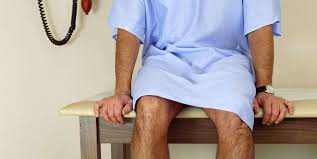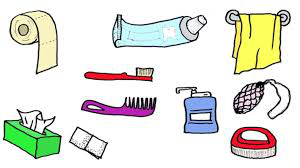Summer: Peak Season for Male urogenital infections
Date:2019-08-14 click:0
With the rise of temperature in summer and the arrival of the rainy season, all kinds of pathogens have begun to invade people's bodies as the warm air and continue to grow and spread, it has entered a peak season for male genitourinary infections.

Infectious diseases have always been a major threat to human health, and the emergence of vaccines is a beneficial weapon for the prevention and control of infectious diseases. According to news, the British government announced on July 9th that the coverage of HPV vaccination program will be extended from girls to boys in September, and it is estimated that tens of thousands of cancer cases will be avoided in the next 40 years.
HPV is not only the main cause of cervical cancer in women but also causes susceptible diseases in men, such as laryngeal cancer and genital warts. According to clinical data, more than 50% of men have suffered from recurrent urogenital infections. It is difficult to cure male reproductive infections thoroughly, which is extremely harmful and easy to recur. If it can not be cured thoroughly, it will cause great damage to male reproductive health.
So, what are the common diseases of male genital infections?
Medical experts pointed out that the common male genital tract infections diseases are mainly divided into 5 types, urethritis, orchitis, epididymitis, prostatitis, and non-bacterial prostatitis. In addition, we also added the male glans diseases.
1. Urethritis
Male urethritis is mostly caused by bacteria directly invading the urethra. In the acute stage, the symptoms are congestion, edema of urethral mucosa, ulcer formation, urethral lipstick, mucous or purulent secretions, tenderness and hardening of the urethra, and in severe cases, it can affect epididymis and spermatic cord.
2. orchitis
Testis caused by mumps is the most common type of orchitis. Mumps is an acute infectious disease caused by viruses, which is easy to be complicated by orchitis in adults. In the acute stage, the patient presented with red, swollen and painful scrotal skin, and obvious heavy feeling when walking. If it is not treated properly in the acute stage, it can turn into chronic orchitis.

3. Epididymitis
Epididymitis is caused by the retrograde spread of urethral stricture, prostatic hyperplasia, urethritis, and tuberculosis. In the acute stage, the symptoms are swelling and pain of the scrotum, which can involve the lower abdomen and the root of the thigh, and make walking inconvenient. If not treated in time, it will turn into chronic epididymitis.
4. Prostatitis
Chronic prostatitis is a common urogenital disease. Nearly 50% of men suffer from the adverse effects of prostatitis, which is mainly caused by the direct spread of urethritis or acute inflammation of other tissues and organs caused by blood and lymphatic infection.
Acute prostatitis has an acute onset, manifested by general weakness, soreness of waist, discomfort in perineum and anus, accompanied by urodynia, frequent urination, urgent urination, and even hematuria, some of which have decreased sexual desire, premature ejaculation or impotence.
5. Non-bacterial prostatitis
Experts pointed out that nonbacterial prostatitis has symptoms such as increased frequency of urination, the urgency of urination, sexual dysfunction and so on, but bacteria can not be detected through the laboratory tests. It is mainly caused by excessive sexual life and sexual excitement or pelvic congestion caused by cycling and horseback riding.
6. Infectious diseases of the glans
Male glans are susceptible to infection of 14 diseases: papulosis of the penis, leukoplakia of the glans, proliferative erythema, cutaneous horn (precancerous lesion), vascular edema of the foreskin of the glans, fixed drug rash of the glans, tinea cruris, tuberculosis, condyloma acuminatum, mildew glans, psoriasis, villous papilloma, balanitis, etc.
So, who are prone to these diseases in summer?
1. Adult men who do not pay attention to personal hygiene, having irregular lifestyle, frequent business trips, frequent access to public places for bathing, accommodation, etc., these men are prone to infection with bacteria, resulting in urodynia, frequent urination, and other symptoms.
2. Men over 50 years old with BPH. Once the situation of incomplete urination and dysuria occurs, we should go to the hospital in time to check the illness and treat prostatic hyperplasia.
3. Men with chronic prostatitis, they will have urination problems and discomforts when resistance decreases. Routine urinalysis of Chronic prostatitis is generally normal, but if there is a pain, urine turbidity, and other symptoms, it is indicated that you may be infected with urethritis.
Five principles of treatment
1. Timely treatment
The best treatment period for most urogenital infections is within 7-30 days after infection. At the beginning of the disease, pathogenic microorganisms only stay on the surface of organs and slightly inside parts, which is less difficult to treat. At this time, treatment will be more thorough.

2. Standardized drug use
It is suggested to the regular professional hospital for scientific and standardized inspection and treatment instead of taking drugs treatment blindly. To find out what are the real causes and receive corresponding treatment and it radically removes the biological chain of pathogens, so that it can not replicate and survive.
3. Thorough treatment
Reproductive infection is easy to repeat, and treatment emphasizes scientific and comprehensive. Therefore, in order to cure diseases radically, we should adhere to full courses of medication and treatment. Otherwise, it can not cure it thoroughly, which makes the condition more complicated.
Patients can take Diuretic and Anti-inflammatory Pill, which not only has the effects of clearing heat and detoxification, promoting blood circulation, promoting qi and relieving pain, promoting diuresis and relieving stranguria, but also has the effect of sterilization, anti-inflammation, and detumescence, and can fundamentally diminish the inflammation and cure disease of male genitourinary system.

4. Systematic treatment
Treat diseases according to the doctor’s guidance strictly, avoid frequent replacement of hospitals or doctors, periodic review is needed to ensure the continuity of treatment effect.
5. Co-treatment of couples
Reproductive system diseases are liable to cause infections between husband and wife. Therefore, if you want to eradicate them thoroughly, both of you and your spouse must be checked and treated at the same time. During the treatment, you should suspend the sexual life in order to avoid cross-infection and make the treatment ineffective.



